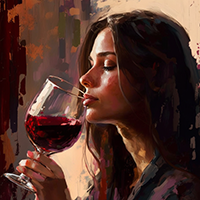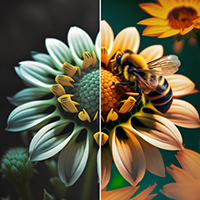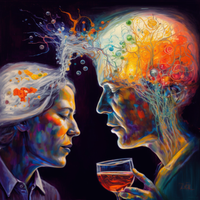Wine Does Really Amazing things in Your Brain!
Posted by Matteo Lahm on 14th Mar 2023
What would you think if a Yale scientist said that tasting wine engages your brain more than math or listing to music?
Professor Gordon Shepherd from Yale School of Medicine is saying just that! He has conducted research that suggests drinking wine stimulates particularly complex emotional and sensory responses in the brain. In his groundbreaking book, Neuroenology: How The Brain Creates The Taste of Wine, Doctor Shepherd states that tasting wine produces more brain activity than music or math. It is an incredibly complex experience involving all five senses, as well as knowledge and memory. When tasting wine, one must pay attention to its color, aroma, flavor, mouthfeel, and finish. This requires an intricate interplay between the brain and the senses to take in all of the information and process it. Furthermore, the brain must also remember past experiences and use them to make judgments and comparisons. This requires much more activity than simply listening to music or doing math equations. To better understand this phenomenon, Dr. Shepherd has even created the term "neurogastronomy," which encompasses the study of how the brain creates its own perception of flavor.

Shepherd states that, "the perception of taste is actually the perception of smell and the sensation of texture, temperature, and other tactile sensations all combined." Therefore, when we taste food, the flavor that we experience is actually a combination of many factors, from the texture of the food to the smell that results.
Yes, this happens with all food and drink but what makes wine so special? Wine is composed of hundreds of different compounds, including alcohol, acids, sugars, tannins, esters and phenolics. Each of these compounds contributes to the overall flavor and complexity. Furthermore, different grape varieties, winemaking techniques, and aging processes all have a role. This complexity is what makes the neurological response to wine so powerful.
Since molecules have no flavor, what is actually going on? What we experience as taste and smell is just an interpretation of the brain. According to Dr. Gordon Shepherd, the way we perceive flavors is analogous to how we perceive colors. He explains that in order to form a visual image of the colors in our environment, our brains use the data collected by our eyes about how light reflects off of the objects around us. This is why bees can immediately identify the center of a flower. They have cone receptors that process ultraviolet light that turns them into perceptual bullseyes. People cannot see them.

Sound, taste and even touch work the same way. Let’s reference the old question of whether a tree makes a sound when it falls if no one is there to hear it. It makes a sound vibration but what it actually sounds like will differ from person to person and species to species. Different people have different auditory capacities and species like dogs can process frequencies humans cannot. The sound itself is a perception that results from the auditory nerve’s communication with the brain. What we “hear” is a neurological interpretation of the sound but not the sound itself. When you touch something hot, you recoil because your brain is telling you there’s danger through manifesting the sensation of pain.
With taste, our olfactory zones and tastebuds register molecular compounds, and our brains produce conceptual models that we experience as taste and smell. What is even more interesting is that subjectivity also plays a role. Shepherd further suggests that when it comes to tasting something, our brain receives signals from our emotions and how we feel about the object, such as a wine glass. In addition, the emotions we feel about ourselves and those around us can influence the flavor we experience.
So the next time you pop open a bottle, take a little extra time to allow your nose and tastebuds to take it all in. Wine really lights up your neurochemistry. If Dr. Shepherd is right, you might get something different from the same batch on any given day. You will give your brain a cognitive workout and enjoy a little contemplation along with your vino. The expression “take time to stop and smell the flowers” was never truer considering that the smell of wine is called a bouquet. Cheers!

